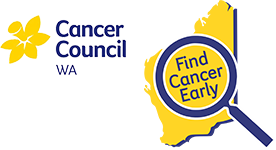Country people slower to act on cancer signs
The earlier cancer is found, the greater the chance of successful treatment, so please listen to your body and get your symptoms checked out as soon as possible.
The article was written by Phoebe Pin and published in the Kalgoorlie Miner on 11 September 2019.
Goldfields residents are becoming more proactive in identifying possible cancer symptoms but there is still room for improvement, according to new survey results released by Cancer Council WA.
The Find Cancer Early campaign was launched two years ago by Cancer Council WA to improve cancer outcomes for regional West Australians by increasing cancer symptom awareness and encouraging people to visit their doctor, clinic nurse or Aboriginal health worker earlier.
An evaluation conducted this year showed that 25 percent of Goldfields adults who participated in the survey took some sort of action after seeing the campaign, with 50 percent of those reporting to monitor their symptoms and a further 43 per cent making an appointment to discuss their symptoms with a local GP.
Cancer Council WA Goldfields regional education officer Rachel Jolly said while the results were encouraging, many people were still unable to identify common cancer red flags including changing bowel habits, unexplained weight loss, unusual pain, persistent coughing, shortness of breath and lumps or swelling anywhere on the body.
“Unfortunately 82 percent of those surveyed in the Goldfields only knew one or two symptoms of the five most common cancers in WA which are prostate, breast, skin, bowel and lung, which comprise almost 60 per cent of all cancer diagnoses,” she said.
“Research indicates regional people tend to present at the GP at a later stage for a number of reasons including because they can be more optimistic, laid-back and sometimes make excuses for not seeking help, which may contribute to later stage cancer diagnoses.”
Ms Jolly said people living in regional Australia are more likely to die within five years of a cancer diagnosis than people living in metropolitan areas and that early intervention was crucial for successful treatment.
“The earlier cancer is found, the greater the chance of successful treatment, so please listen to your body and get your symptoms checked out as soon as possible,” she said. Anyone who would like to access Cancer Council WA services and support is asked to call 13 11 20.
